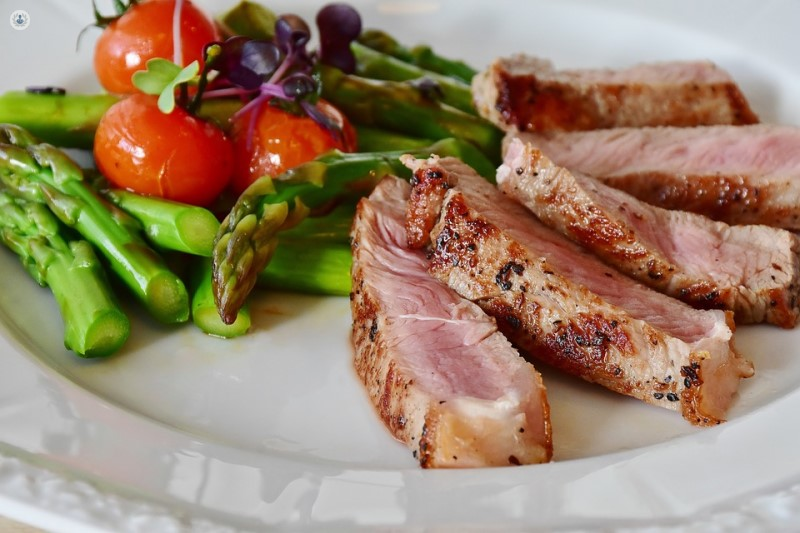A breast oncologist’s guide to healthy eating
Escrito por:In this article below, highly regarded consultant medical and clinical breast oncologist, Dr Shiroma De Silva-Minor, explains how people can reduce their chances of getting breast cancer through diet.

How can I reduce my risk of breast cancer through dietary habits?
Dietary habits can have a significant effect on health, vitality, and longevity. As a breast oncologist, I recommend that women incorporate a variety of healthy foods into their diet to help reduce their risk of breast cancer, as well as to also feel (and likely look) better. Here is my advice on ways to optimise your diet.
Firstly, fruits and vegetables are rich in vitamins, minerals, and antioxidants that can help protect against cancer. Studies have shown that the more fruit and vegetables that you eat, the less likely you are to die at any given age.
Seven portions a day with five vegetables and two different types of fruit significantly reduces the risk of death from cancer and heart disease. The UK ‘5 a day’ should be seen as a minimum. This should include leafy greens, berries, citrus fruits, cruciferous vegetables (such as broccoli and cauliflower), and colourful vegetables like carrots and peppers.
Whole grains are also hugely beneficial when it comes to reducing one’s chances of being diagnosed with breast cancer, or any type of cancer for that matter. These are high in fibre and other nutrients that can help lower the risk of breast cancer. Choose whole grain bread, pasta, and rice, as well as quinoa, barley, and oats.
Also, incorporating proteins in to every meal will ensure that you are fuller for longer, with less ‘sweet’ cravings. Proteins are essential for maintaining muscle mass and core strength, which are lost with increasing age. Choose lean sources of protein, such as eggs, skinless chicken, fish, nuts and pulses. These foods are low in saturated fat, release energy in a sustained manner, and can help maintain a healthy weight, which is important for reducing the risk of breast cancer.
Is it recommended to include fats in my diet?
Some amount fat in one’s diet can actually be beneficial. Not all fats are unhealthy. In fact, dietary fats are essential for normal cell function, particularly for the brain and the nervous system.
However, some fats are healthier than others, such as those found in avocados, nuts, seeds, oily fish, and olive oil. These fats can also help reduce inflammation in the body, which is thought to play an important role in the development of cancer.
Then, in terms of soy products, these products contain phytoestrogens. Eating a moderate amount (one to two servings a day) of whole-soy products, such as tofu, soy milk, and edamame, may have a protective effect against breast cancer.
Certain herbs and spices, such as turmeric, ginger, and garlic, have anti-inflammatory properties and may help protect against cancer. Of all dietary habits, the strongest evidence of an adverse effect on health and breast cancer risk is from alcohol.
To book a consultation with Dr Shiroma De Silva-Minor today, simply visit her Top Doctors profile.


